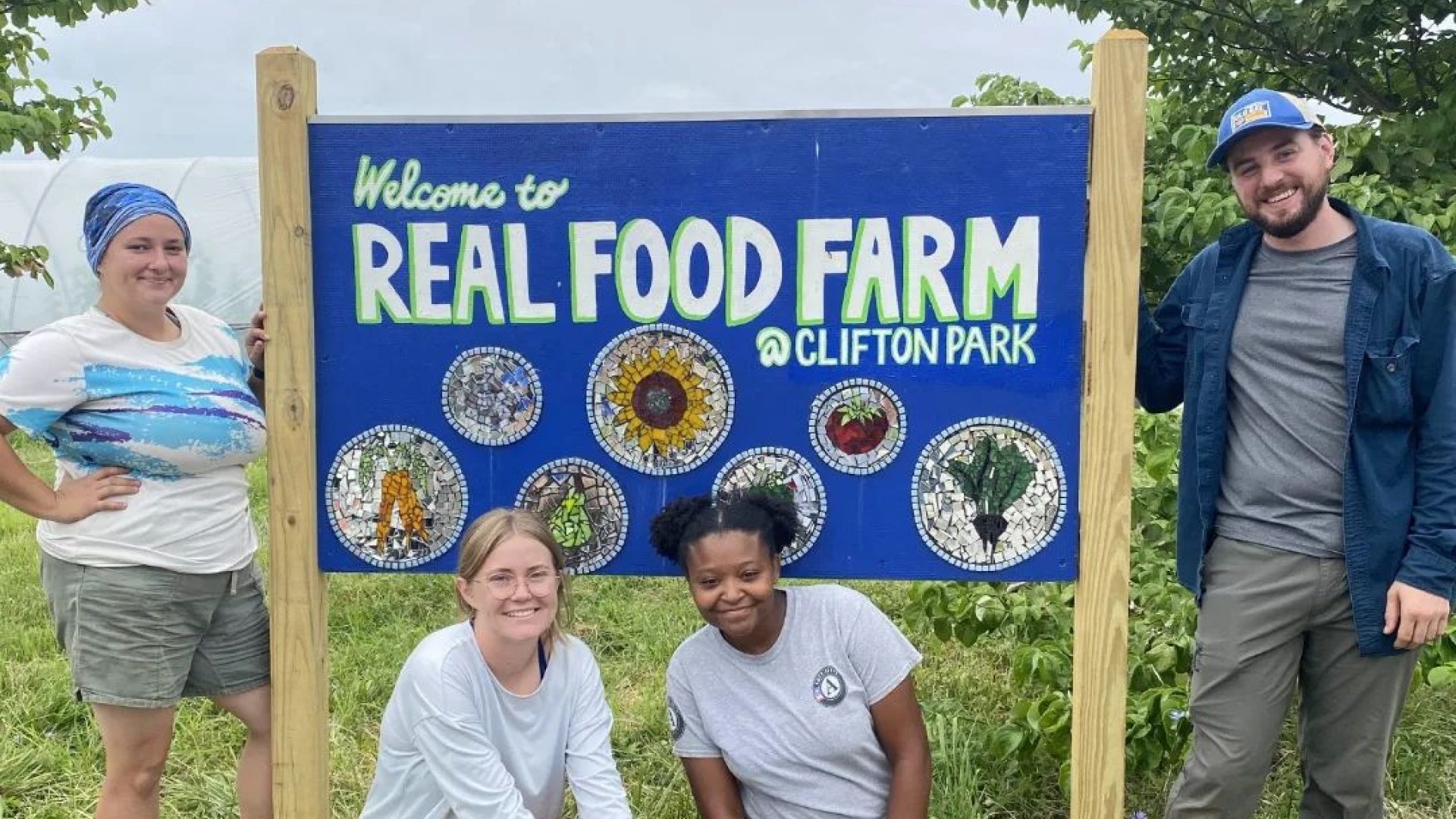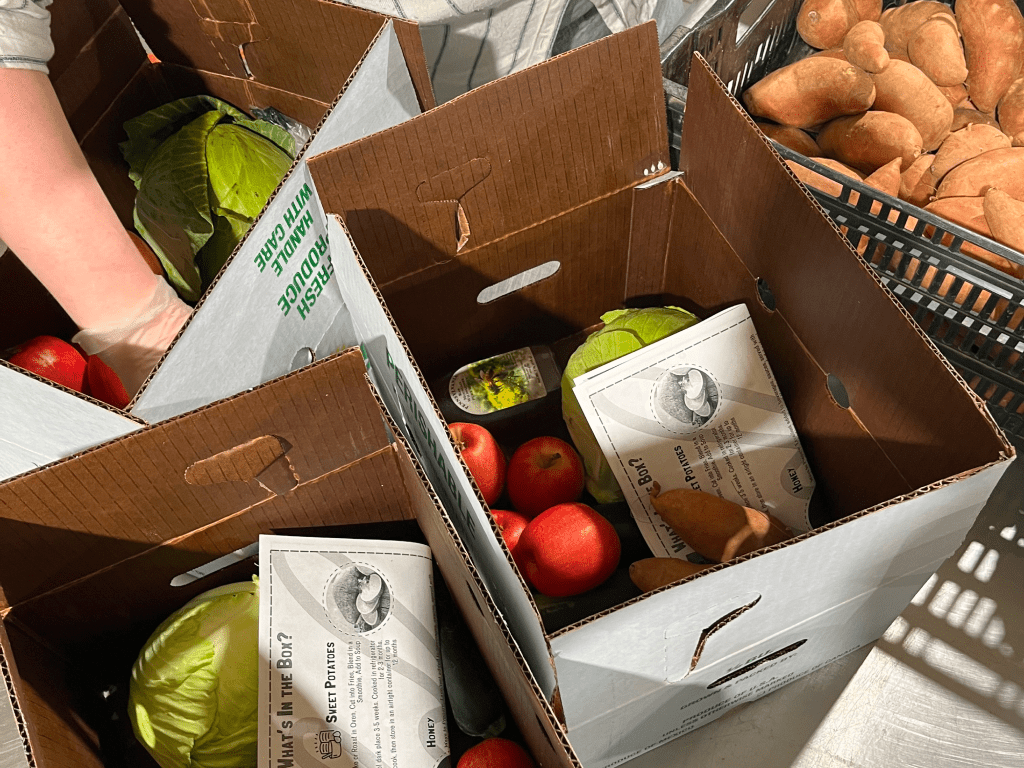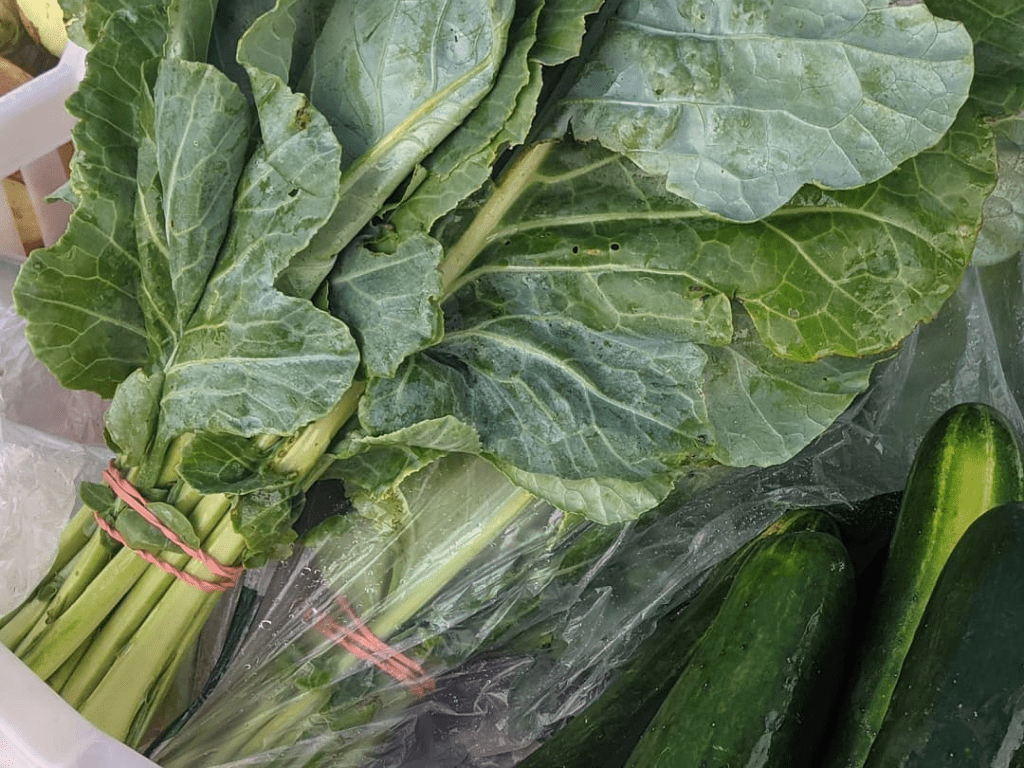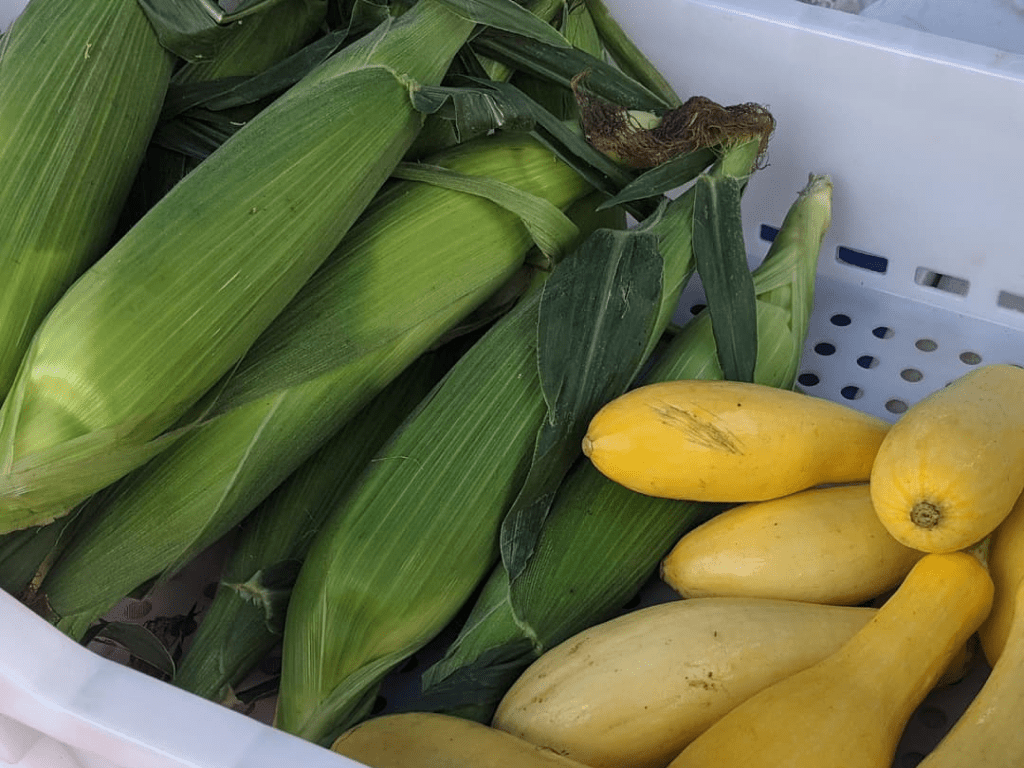
Real Food Farm
Real Food Farm works toward a just and sustainable food system in Baltimore by growing food, helping people access food and providing farming education.
Our Urban Farm
Real Food Farm is an urban farm in Northeast Baltimore’s Clifton Park. This site is home to hoophouses, outdoor growing fields, a sensory garden, beehives and 100+ fruit trees. We also have an education/events pavilion and a small greenhouse for our seedlings.

Our Food
We grow fresh fruits and vegetables at Real Food Farm and we partner with other local farms and food producers. Real Food Farm operates a Community Supported Agriculture program (CSA) where you can receive healthy food from us and our partners on a regular basis. We deliver food to qualifying older adults through our Affordable Produce Delivery Program. You can also find our food at local farmers markets.

Farm Education
Real Food Farm provides AmeriCorps service opportunities for people interested in urban agriculture. We also host field trips for local schools and summer programs.
Contact us at krundquist@civicworks.com if you’re interested in bringing a group to visit Real Food Farm.
